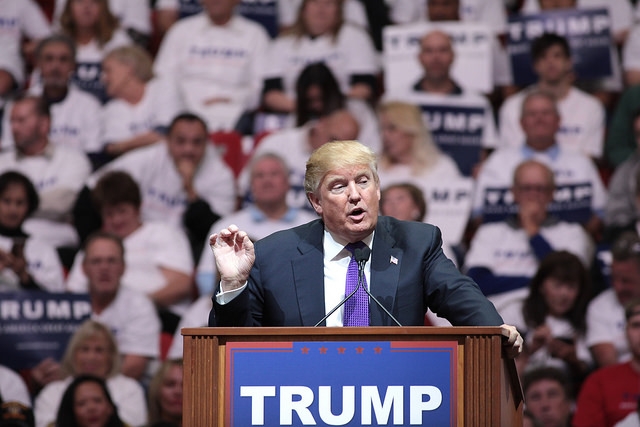Trump and Brexit: Is There A Better Way To Use The Internet?
We live in a world with access to more information than all of the world's university libraries combined. So why, with all this access, "post-truth" is Oxford Dictionaries' word of the year and potentially "one of the defining words of our time"?
"Post-truth" as defined in the dictionary is an adjective relating to circumstances in which objective facts are less influential in shaping public opinion than emotional appeals. Although the word has been in use since 1992, it's been rising in popularity, which coincides with the rise in social media being the 'go-to' news source. And what's wrong with that?

It's true, the internet does contain vast amounts of information. But do we make the most of it? Do we really do our fact checking? And do we really look for a balanced view of facts?
Unlikely, considering the amount of time we collectively spend on social media and watching cat videos. Clickbait articles, selfies, viral videos, memes, listicles, gaming, make-up tutorials – these are the things we associate with the internet; not the Stanford Encyclopedia of Philosophy or MIT OpenCourseWare.
In our fancy algorithm powered world, it is so easy to see what you want to see. Your 'favourite' stories from your 'favourite' people rise to the top. And what about the other side of the coin? Particularly when it comes to politics?
As our attention spans drop and our dependency on the internet increases, our conception of, and interaction with, politics will inevitably change too. And it has. Today it's only the most shocking, crazy, and radical stories that are likely to be widely shared and discussed. And it's an understanding of that which in part allowed Donald Trump to win the American election, and the Brexiteers to convince us to vote out of the EU.
“I will build a great, great wall on our southern border. And I will have Mexico pay for that wall.” “All of the women on The Apprentice flirted with me – consciously or unconsciously. That's to be expected.” “The beauty of me is that I'm very rich.” “It's freezing and snowing in New York – we need global warming.” “I have never seen a thin person drinking diet coke.” Just a handful of Trump quotes, but each perfectly matched to a population that increasingly expects politics to be entertaining, shareable, and funny.
In the UK, those campaigning for Brexit adopted a similar approach, citing memorable figures – e.g., “Brexit will put £350 million into the NHS”, using provocative images, and casting EU leaders as effete elites, drastically out of touch with the average Briton.
The more radical the quote or idea, the more it will be searched on Google and the more it will be shared online. This leads to news becoming siloed, with people being exposed to one side of the debate far more than the other. These radical messages will resonate with those who are unhappy with the system – who may have genuinely been let down by it – and who want change at all costs.
We have the internet. But we're not using it to its full potential. I'm not saying that we should all spend our evenings studying and fact checking (I do like an odd cat video myself).
But perhaps we can all play a part by not just sharing balanced, thought-provoking articles – there's certainly enough of them, but also communicating with those who hold different views than ourselves in a non-combative, non-judgemental way.
After all, the values I hear from those who were not in favour of Brexit nor Trump are of open mindedness, tolerance and multiculturalism. So let's make them a part of our culture online as well as off-line.
What do you think about the way we use the internet?
Email me your thoughts.
